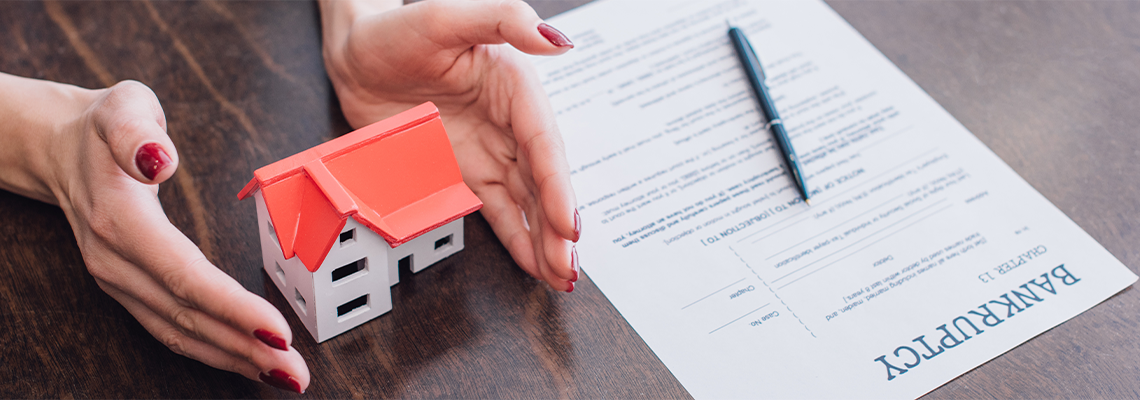
How to Prepare for Bankruptcy the RIGHT Way
Bankruptcy is a word that often sparks fear and uncertainty. Many people associate it with failure and the loss of everything they’ve worked hard to build. However, the reality is quite different. Bankruptcy laws exist to provide individuals and families struggling with overwhelming debt a fresh start.
In many cases, bankruptcy allows you to eliminate debts while protecting essential assets such as your home, car, and retirement savings.
If you’re juggling bills, skipping payments, and dealing with nonstop creditor calls, it may be time to consider bankruptcy as a viable option. This guide will help you understand the steps involved in filing for bankruptcy, common mistakes to avoid, and how an experienced bankruptcy attorney can help you through the process.
10 Steps to Prepare for Bankruptcy in Mississippi
Taking the right steps before filing for bankruptcy can make a significant difference in how smoothly the process goes. Here’s what you need to do:
1. Evaluate Your Financial Situation
Before making any decisions, assess your current debts, income, and expenses. Are you behind on mortgage or car payments? Are you only making minimum payments on credit cards? If your debt is unmanageable, bankruptcy may be a suitable option.
2. Consult a Bankruptcy Attorney
Filing for bankruptcy is a legal process that requires careful planning. A knowledgeable bankruptcy attorney can help you determine whether Chapter 7 or Chapter 13 is right for you and guide you through the entire process. If you’re in or around Magee, Mississippi, contact Ware Law Firm, PLLC. Attorney Daniel Ware has been helping individuals and families resolve financial hardships for over 20 years.
3. Stop Using Credit Cards
Some people make the mistake of maxing out their credit cards right before filing for bankruptcy. However, purchases made within 90 days of filing can be denied by the court and even considered fraud. It’s best to stop using credit cards immediately.
4. Avoid Taking on New Debt
It might be tempting to apply for a new loan or credit card before filing, but this can raise red flags in bankruptcy court. Any new debts incurred right before filing may not be dischargeable.
5. Gather Financial Documents
You will need to provide detailed financial information, including:
- Recent pay stubs
- Bank statements
- Tax returns (typically the last two years)
- A list of assets and liabilities
- A complete list of debts, including credit cards, medical bills, and loans
- Mortgage and car loan statements
6. Avoid Repaying Certain Debts Before Filing
While it may seem responsible to pay off friends, family members, or certain creditors before filing, this can be problematic. The court may view these payments as preferential and could demand that the money be returned.
7. Stop Automatic Payments
If you have automatic deductions for loan payments, cancel them before filing. This ensures that you have full control over your finances as you go through bankruptcy.
8. Understand What Debts Can Be Discharged
Bankruptcy can wipe out many types of debt, including:
- Credit card balances
- Medical bills
- Personal loans
- Certain past-due utility bills
However, some debts cannot be discharged, such as:
- Most student loans
- Child and spousal support
- Recent tax debts
- Court fines and penalties
9. Protect Your Retirement Savings
Do not withdraw money from your 401(k) or IRA to pay off debts before filing for bankruptcy. Retirement accounts are generally protected from creditors, and withdrawing funds could create unnecessary financial hardship.
10. Act Quickly if You’re Facing Lawsuits or Wage Garnishment
If creditors are suing you or garnishing your wages, filing for bankruptcy can put an immediate stop to these actions. The sooner you act, the better.
What Not to Do Before Filing for Bankruptcy
Just as there are steps to take before filing, there are also common mistakes you must avoid:
- Don’t go on a spending spree. Large purchases on credit before filing can be considered fraud.
- Don’t transfer or hide assets. Selling or transferring property to family or friends at below-market value can be flagged as fraud.
- Don’t repay some creditors but not others. Treat all dischargeable debts equally to avoid legal complications.
- Don’t ignore legal notices. If a creditor sues you, delaying your bankruptcy filing can lead to wage garnishment or bank account levies.
Choosing the Right Type of Bankruptcy
There are two primary types of personal bankruptcy:
Chapter 7 Bankruptcy – Liquidation
- Erases most unsecured debts
- Allows you to keep exempt assets (home, car, retirement accounts)
- Process typically takes 4-6 months
- Best for individuals with little to no disposable income
Chapter 13 Bankruptcy – Reorganization
- Allows you to create a repayment plan (typically 3-5 years)
- Helps you catch up on missed mortgage and car payments
- Lets you keep all assets if you meet payment obligations
- Best for individuals with regular income who can afford a structured repayment plan
How an Experienced Bankruptcy Attorney Can Help
Bankruptcy involves complex legal procedures and extensive paperwork. An experienced attorney can help you:
- Determine which type of bankruptcy is best for your situation
- Ensure all required documents are filed correctly
- Protect your rights and assets
- Represent you in court proceedings
If you’re in or around Magee, Mississippi, or in Simpson, Smith, Jefferson Davis, Covington, or Southern Rankin counties, contact Ware Law Firm, PLLC. Attorney Daniel Ware has the knowledge and experience to guide you through the bankruptcy process and help you secure a fresh start.
Take Control of Your Financial Future
Bankruptcy is not the end—it’s a new beginning. By making informed decisions and working with a trusted bankruptcy attorney, you can eliminate burdensome debt and regain financial stability. If you’re ready to explore your options, reach out to Ware Law Firm, PLLC, today.




